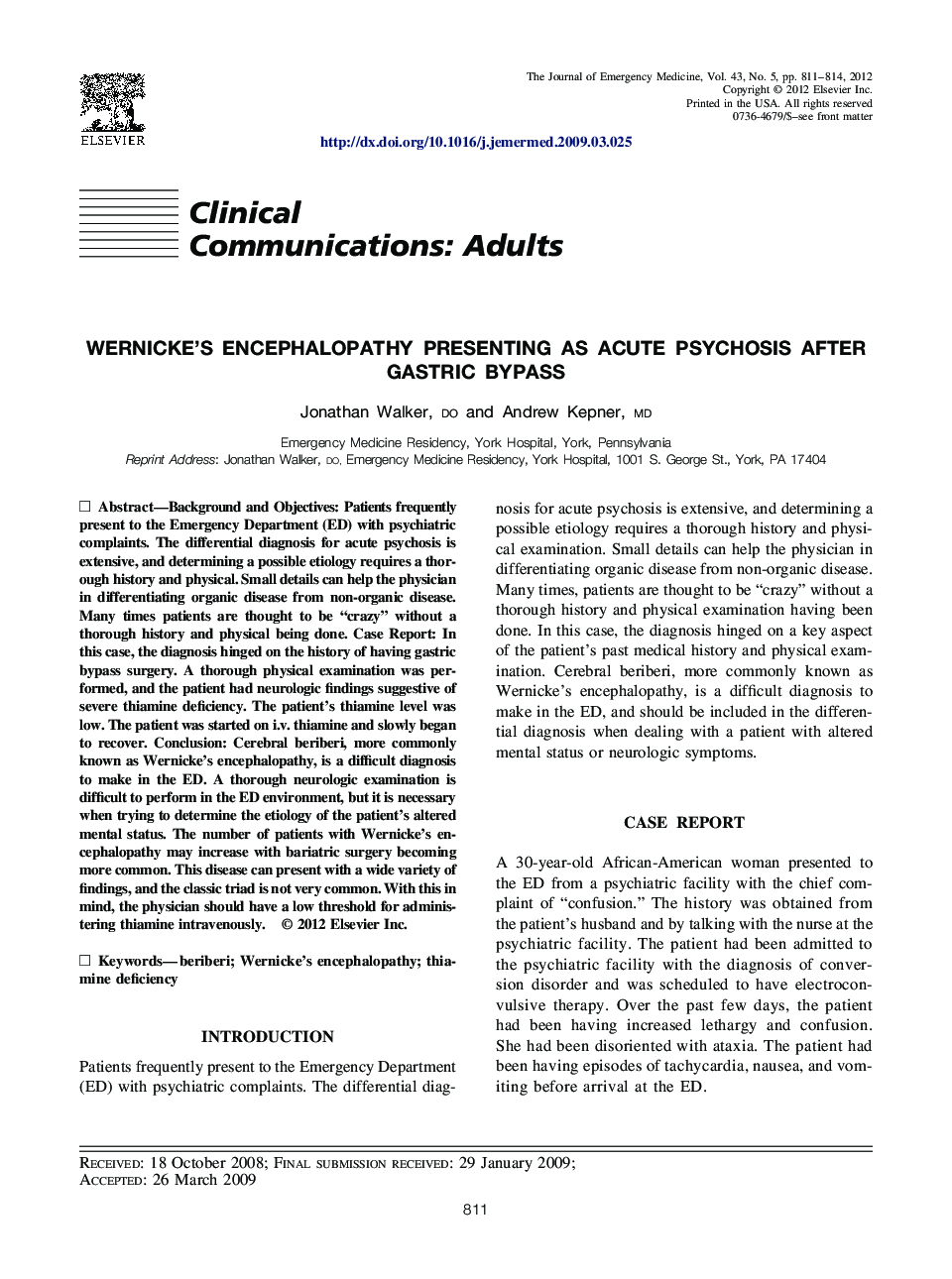| Article ID | Journal | Published Year | Pages | File Type |
|---|---|---|---|---|
| 3248771 | The Journal of Emergency Medicine | 2012 | 4 Pages |
Background and Objectives: Patients frequently present to the Emergency Department (ED) with psychiatric complaints. The differential diagnosis for acute psychosis is extensive, and determining a possible etiology requires a thorough history and physical. Small details can help the physician in differentiating organic disease from non-organic disease. Many times patients are thought to be “crazy” without a thorough history and physical being done. Case Report: In this case, the diagnosis hinged on the history of having gastric bypass surgery. A thorough physical examination was performed, and the patient had neurologic findings suggestive of severe thiamine deficiency. The patient's thiamine level was low. The patient was started on i.v. thiamine and slowly began to recover. Conclusion: Cerebral beriberi, more commonly known as Wernicke's encephalopathy, is a difficult diagnosis to make in the ED. A thorough neurologic examination is difficult to perform in the ED environment, but it is necessary when trying to determine the etiology of the patient's altered mental status. The number of patients with Wernicke's encephalopathy may increase with bariatric surgery becoming more common. This disease can present with a wide variety of findings, and the classic triad is not very common. With this in mind, the physician should have a low threshold for administering thiamine intravenously.
